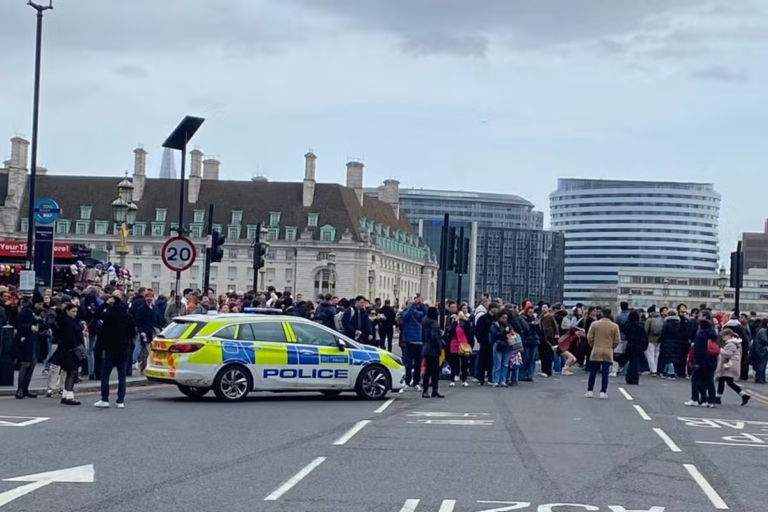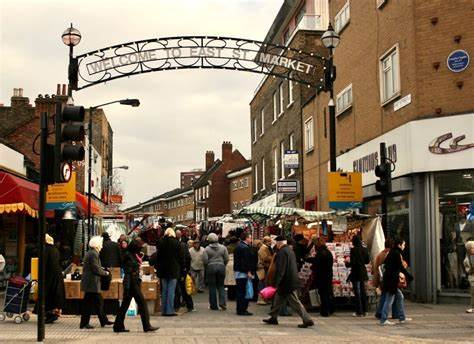The Blackwall Tunnel, one of London’s crucial river crossings connecting the North and South of the Thames, has recently been subject to periodic closures due to ongoing works for the new Silvertown Tunnel, which is expected to open in 2025. These closures, often impacting both commuters and businesses, have raised numerous questions and concerns regarding their timing, alternative routes, and the impact on daily travel. This article delves into everything you need to know about the Blackwall Tunnel closure, based on the latest available information, including updates from Transport for London (TfL).
Why Are There Closures?
The Blackwall Tunnel is a vital part of London’s transport infrastructure, but it is also aging and in need of repairs. As part of a broader effort to alleviate congestion and improve capacity in East London, the construction of the new Silvertown Tunnel, just a stone’s throw away from the Blackwall Tunnel, has been progressing. This £2 billion project aims to provide an alternative crossing to ease traffic in the area. While the Silvertown Tunnel is expected to open in 2025, the construction has required a series of temporary closures of the Blackwall Tunnel to facilitate essential works on both the tunnel itself and the surrounding roads.
When Will the Blackwall Tunnel Be Closed?
The closure dates for the Blackwall Tunnel have been scheduled for weekends, with the most recent closures planned for the fall of 2024. The southbound tunnel will be closed for maintenance and construction on several weekends, including overnights and some Sundays. For example, one notable closure took place over the weekend of November 16-18, 2024, with the southbound tunnel closed from 11 pm Saturday to 5 am Monday. In March 2024, there will be additional closures, such as between March 23 and March 25, and again in April. These closures can disrupt travel plans, so TfL advises commuters to plan alternative routes in advance.
Impact on Commuters and Drivers
Alternative Routes: For drivers, these closures can cause significant delays. Southbound traffic is diverted away from the Blackwall Tunnel, while northbound traffic can still use it as usual. However, diversions can add significant time to travel, especially for long-haul trucks and buses. Those using alternative crossings, such as the Rotherhithe Tunnel or Tower Bridge, should be aware of height and weight restrictions. These restrictions are important for larger vehicles like lorries or buses. The Woolwich Ferry and the Dartford Crossing are also viable alternatives but are likely to experience higher traffic volumes during Blackwall Tunnel closures, leading to longer waiting times.
Public Transport Disruptions: Public transport services are not exempt from disruption either. Bus routes, especially the 108, will be split in two during some closures, requiring passengers to change buses or take alternative routes such as the Jubilee Line. In addition, specific parts of the Tube network, like the Elizabeth Line, may also be affected on certain days.
What About the Silvertown Tunnel?
The new Silvertown Tunnel, which is under construction near the Blackwall Tunnel, is set to open in 2025. Once completed, it will provide a much-needed additional river crossing between East and South London. The tunnel will charge tolls, with car drivers expected to pay up to £4 during peak hours and £1.50 during off-peak periods.
While the Silvertown Tunnel promises to alleviate congestion, the Blackwall Tunnel closures are essential for ensuring that the new tunnel is safely integrated into London’s existing transport infrastructure. As part of the planning, TfL is making efforts to minimize disruption, but it’s clear that commuters need to be prepared for delays and plan their journeys in advance.
What Should Drivers and Public Transport Users Do?
Plan Ahead: If you are planning to travel during the closure times, it is highly recommended to check for real-time updates on the Transport for London website. TfL also advises drivers to use third-party apps like Waze to help find the best alternative routes. For those relying on buses or trains, be prepared for potential service disruptions, especially over weekends when the tunnel is closed for maintenance.
Use Alternative Modes of Transport
With the Blackwall Tunnel closed, it’s worth considering using alternative transportation methods. The Jubilee Line and other London Underground services remain an efficient way to cross the Thames. Additionally, cycling is becoming an increasingly popular option, with bike lanes and cycle hire stations available throughout London. TfL also offers various travel discounts for those affected by public transport changes.
FAQs
Why is the Blackwall Tunnel closed?
The Blackwall Tunnel is closed temporarily due to ongoing works associated with the Silvertown Tunnel project and maintenance operations. These closures are part of efforts to update infrastructure and improve traffic flow in the area.
What are the alternative routes during the closure?
During Blackwall Tunnel closures, other nearby crossings, like the Rotherhithe Tunnel and the Woolwich Ferry, may experience high traffic volumes. You may want to avoid these routes and use other crossings like the Limehouse Link or the Thames Clippers river bus services.
Will bus services be affected?
Yes, bus services that pass through the Blackwall Tunnel will be impacted during the closure times. Passengers are encouraged to check for specific changes to routes on the Transport for London (TfL) website.
How can I check for updates on tunnel closures?
For real-time updates on tunnel closures and other transport changes in London, you can visit the TfL website or subscribe to their email alerts. It’s also helpful to use their journey planner for alternative routes.
In Summary
While the Blackwall Tunnel closures due to the ongoing construction of the Silvertown Tunnel are temporarily inconvenient, they are a necessary part of improving London’s infrastructure. By planning ahead and utilizing alternative routes, both drivers and public transport users can minimize the impact on their travel. With the Silvertown Tunnel set to open in 2025, the future of river crossings in East London looks promising, with a focus on reducing congestion and improving traffic flow across the Thames.
To read more, Click Here .







